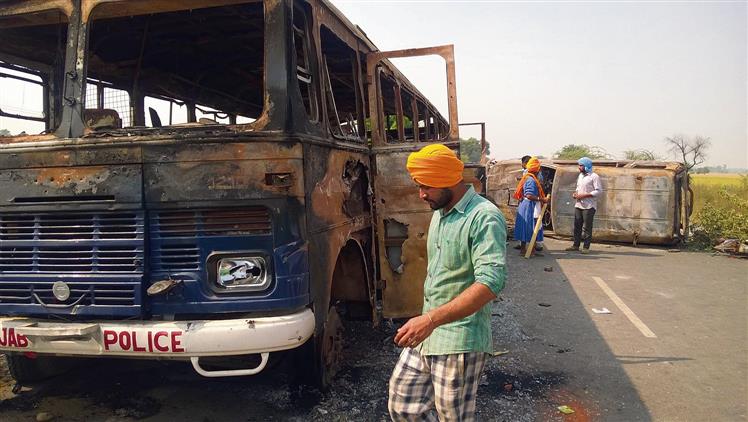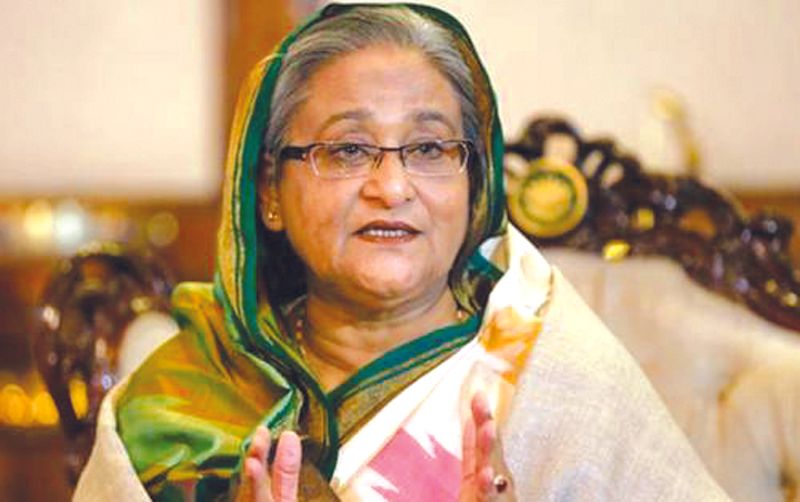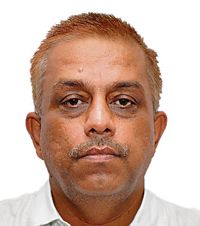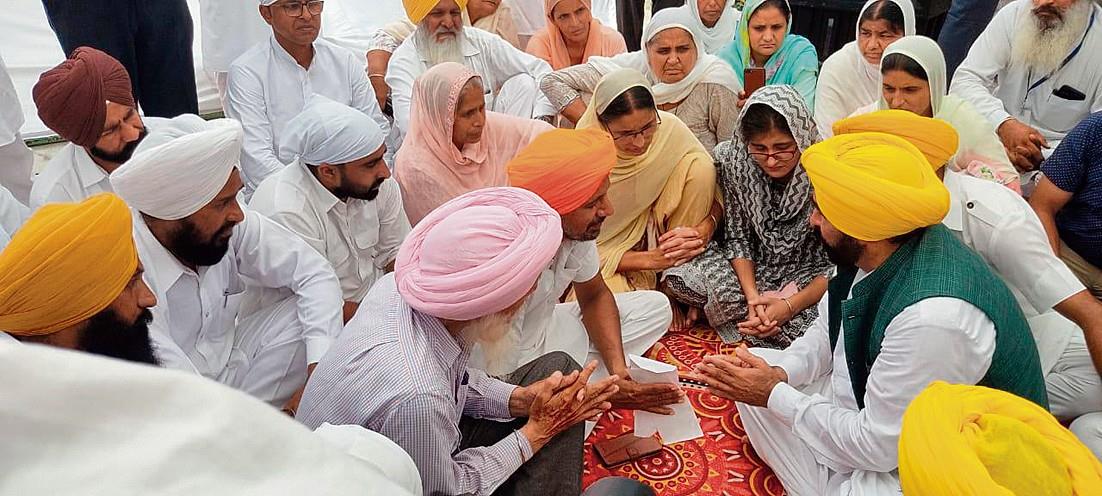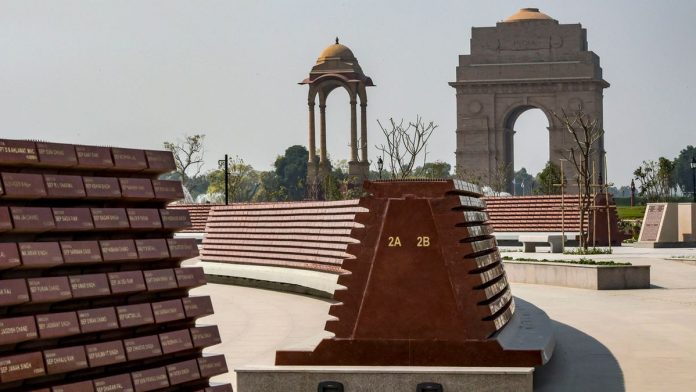Supervisory officers need to maintain a constant watch on personnel who have the proclivity to be influenced by radical ideas.
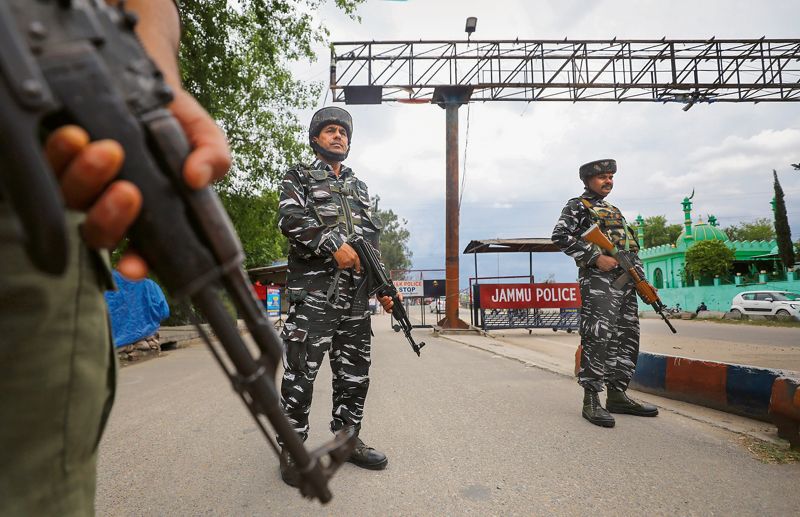

IN a fit of rage after not being allowed by his superior to detrain at a railway station, Constable Chetan Singh Chaudhary of the Railway Protection Force (RPF) shot dead Assistant Sub-Inspector Tikaram Meena on the Jaipur-Mumbai Superfast Express on July 31. Thereafter, he went on a killing spree, picking out Muslims, whom he identified from their beards. Three Muslims were shot dead from point-blank range, after which Chaudhary reportedly told a burqa-clad woman to chant ‘Jai Mata Di’ while pointing his gun at her. Fortunately, other passengers came to her rescue and shouted at him, forcing him to retreat.
Investigations by senior officers of the RPF have revealed that Chaudhary had a bad track record. He is known to have brought a Muslim autorickshaw driver, Wahid Khan, to the RPF post in Ujjain in February 2017 for apparently no reason and harassed him. He was taken to task after Wahid lodged a complaint with Chaudhary’s superiors. On another occasion, he allegedly withdrew Rs 25,000 from a colleague’s account using the latter’s ATM card. He is even alleged to have assaulted another colleague when posted in Bhavnagar. Assaulting a colleague is considered a serious offence in the police and paramilitary forces. Yet, he continued to be on the rolls of the RPF.
According to latest reports, he has been dismissed from service after being taken into judicial custody on various charges, including murder.
Chaudhary’s wife Renu Singh, who joined the investigation, told the Government Railway Police that he had a fall some years ago, following which he suffered from a neurological disorder and was under treatment in Mathura.
That he had been radicalised was evident not just from the killing of Muslim passengers but also from his utterances before he detrained. Standing next to one of the persons he killed, he said in a video, “…Pakistan se operate hue hain ye aur media yehi coverage dikha rahi hai, unko sab pata chal raha hai yeh kya kar rahen hain … agar vote dena hai, agar Hindustan mein rehna hai to main kehta hoon, Modi aur Yogi, yeh do hain….”
Senior officers of the RPF are now seeking the help of psychiatrists to screen the personnel and counsel those who need psychiatric treatment. Efforts are being made to improve their living conditions, as also working hours, and to identify stress factors that drive the personnel to take such extreme steps.
Three Rapid Action Force (RAF) personnel deployed in Manipur were suspended for setting a meat shop afire in the New Checkon area of Imphal East district on May 27. The shop belonged to a Kabui Naga, a Christian. The Kabui Nagas inhabit Tamenglong district of Manipur. The three, including an inspector, were not from any northeastern state. The RAF, which is a specialised wing of the Central Reserve Police Force tasked to handle
communal disturbances, promptly suspended them.
Manipur Police personnel have been accused of playing a partisan role by joining the Meiteis when they went berserk, attacking Kukis in the valley. The fact that policemen handed over two men and three women to the agitated Meiteis in early May, which led to the women being paraded naked and one of them being raped, is a blot on the state police. That they were conspirators to the whole incident has been well established.
Even an iota of concern for the victims who looked up to them for protection would have goaded them to inform the police control room immediately or they could have rushed to the nearest police station and come back with reinforcements to rescue the victims.
The role of Manipur Police officers has also come under scrutiny. When women were publicly paraded and then raped, how is it that they were not aware of it until the video went viral two months later? What happened to the intelligence machinery in the state? These are matters of investigation.
Confrontations between the Assam Rifles, a paramilitary force raised in 1835, and the Manipur Police have led to ugly situations, largely because the former stood firm that it would not allow the latter to enter the area inhabited by the Kukis. It was tasked to dominate the buffer zone to avoid clashes between the warring tribals and non-tribals. Suspecting that Manipur Police commandos are supporting the Meitei attackers, the Kukis have been demanding the retention of the Assam Rifles in the hills, while the Meiteis have called for their ouster from the state. The Kukis have gone to the extent of stating that the Armed Forces Special Powers Act (AFSPA) should be reimposed in the state. And this, despite the fact that until the withdrawal of the AFSPA from areas under the jurisdiction of 15 police stations in April last year and another four police stations in March this year, there was vehement opposition to AFSPA in the state.
The need to insulate policemen and personnel of the Central Armed Police Forces (CAPFs) from communal bias calls for serious and immediate attention of senior police officers. It is the sacred duty of every policeman to protect every citizen, even at grave risk to one’s life, irrespective of race, caste or religion. Senior supervisory officers need to maintain a constant watch on such personnel who have the proclivity to be influenced by radical ideas. As part of the annual medical check-up, they need to be put through psychiatric assessment.
There is a dearth of psychiatrists in the CAPFs and police forces. A good number of psychiatrists need to be enlisted and associated with the recruitment process so that hotheads do not make it to the CAPFs or the state police forces. Their activities on social media will have to be monitored as these play a very crucial role in radicalising the personnel. Unless the virus of communalism is not allowed to afflict personnel of CAPFs and the state police, the public will not repose confidence in them and certain sections of society will continue to feel fearful and insecure.








